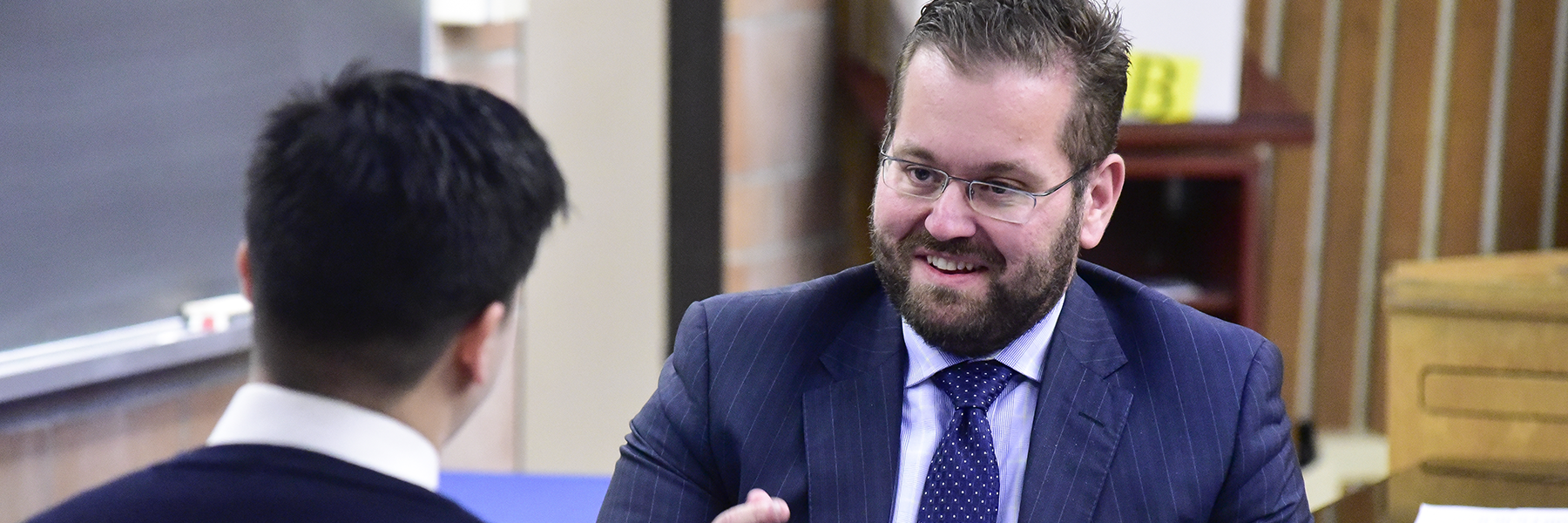Graduate and Professional School Interviews
It is very common for a graduate or professional school program to invite you for an interview. Many of the kinds of questions you could be asked in a job interview could be asked in a graduate or professional school interview, including why you want to join their department.
Also see the preparation for a formal interview below. This advice is applies to any kind of graduate or professional school interview.
What is the MMI?
The Multiple Mini Interview (MMI) is an increasingly popular screening method used to select candidates for admission to educational programs in the regulated professions, most commonly within the health professions – e.g., medicine, pharmacy, occupational therapy, and others.
The format requires candidates to participate in a series of short, structured interview stations that are used to assess personal qualities, skills and knowledge. Typically there are 8 to 12 stations. Depending on the program and school, the questions may or may not relate to health care topics.
Interview Strategies
Before you begin to answer:
- After reviewing the question, try to identify why you are being asked this question. What do you think the interviewer is trying to evaluate?
- When entering each station, pause to introduce yourself (unless instructed otherwise), smile, and consider your body language.
- Summarize or rephrase the question before responding.
- Structure your response so that the interviewer has an idea of what you will be discussing.
When you answer:
- Pace yourself.
- Articulate your thinking process as it is helpful for the interviewer to hear how you arrived at your conclusion and demonstrate that you fully considered all of the information, stakeholders and implications.
- Connect your response to professional codes of conduct when appropriate.
- Relate your response to your personal/professional experiences when appropriate.
- Conclude by summarizing and highlighting your main points.
What does the MMI interview process entail?
Candidates are given 2 minutes to read the question or scenario posted outside the station door and mentally prepare a response before entering the interview room.
Upon entering the station, the candidate will have 6-8 minutes to respond to the question (you will be timed, so you will know how much time you have).
The candidate will receive a signal (a buzzer may sound) that it is time to move to the next station. Some of the scenarios may involve debating a topic, role playing with an actor or working as part of a team to complete a task.
The following lists some example categories. It is not intended to be a comprehensive list.
Examples of MMI Station Types and Skill Evaluation
| Station Types | Sample Questions | Candidates are evaluated on their ability to |
|---|---|---|
| Communication/ Role Play | Your company needs both you and a co-worker (Sara, a colleague from another branch of the company) to attend a critical business meeting in San Diego. You arrive at Sara's office to drive her to the airport. Sara is in the room. |
|
| Health Care Knowledge | Compare the Canadian and US healthcare system addressing advantages and disadvantages of privatized health care. |
|
| Critical Thinking | Universities strive to balance the educational needs of their students and the costs required to service a large number of individuals. One side argues that smaller classes are more effective, while others argue that it makes no difference, and larger classes should be used to minimize costs. Discuss your opinion. |
|
| Ethical Decision Making | Dr. Smith recommends homeopathic medicines to his patients. However, he does not believe that they work, as there is no scientific evidence to support their usage. He recommends them to patients with their fatigue or headaches because he believes that it will do no harm and provide them reassurance. Discuss the ethical problems that Dr. Smith's behaviour might pose. |
|
| Writing | Write a paragraph about your response/reaction to a quotation. |
|
Reference: Eva KW, Rosenfeld, J., Reiter HI, Norman GR. (2004). An Admissions OSCE: The Multiple Mini Interview. Medical Education, 38: 314-326
Where can I find more information and resources?
- Log into clnx.utoronto.ca and click on Events & Workshops, then UTSC and then AA&CC.
-
MMI Prep 101 and similar workshops
MMI has become an admission requirement for many professional healthcare programs used to assess an applicant's soft skills.
In Part 1, you will learn how the MMI is different from a regular interview in this interactive workshop and explore strategies for answering interview questions.In Part 2, we will practice for video interviews, and understand the qualities that admissions committees look for when interviewing applicants.
-
- Meet with a career advisor to practice different types of questions.
- Review the professional code of conduct for the appropriate profession by visiting the professional association/regulatory body website (e.g., Ontario College of Physicians and Surgeons website).
- Read Doing Right: A Practical Guide to Ethics for Medical Trainees and Physicians by Philip C. Hebert, available through the U of T Library.
- Visit online student forums such as Premed 101 or the Student Doctor Network to find advice from people recently admitted via a MMI process. Note: We do not endorse the content on these websites.
